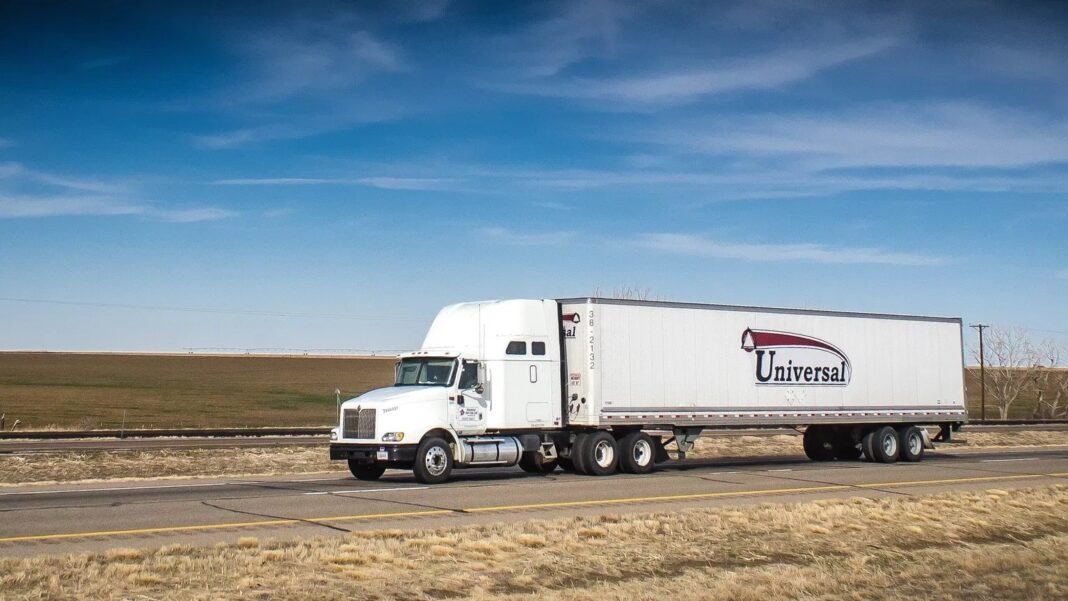Transportation provider Universal Logistics Holdings reported a decline in second quarter earnings and revenue due to lower intermodal volumes and slow demand, company officials said.
Universal Logistics Holdings released its second-quarter results after the market closed on Thursday and held an earnings call Friday.
The company reported second quarter revenue of $393.8 million, a 15% year-over-year decrease. Adjusted earnings per share decreased 73% year-over-year to 32 cents during the quarter.
“The second quarter of 2025 remained a challenging environment across the transportation and logistics industry,” CEO Tim Phillips said.
Universal Logistics (Nasdaq: ULH) is a Warren, Michigan-based truckload transportation, intermodal and logistics provider. The company provides services across the U.S, Mexico, Canada and Colombia and has more than 10,000 employees.
The company missed Wall Street analysts’ forecasts for revenue of $398.5 million and earnings per share of 34 cents in the second quarter.
“The contract logistics segment remains the cornerstone of our results,” Phillips said. “Revenues were $260.6 million, down slightly from Q2 of last year. The integration of Parsec continues to progress smoothly and it contributed $55 million in revenue during the quarter.”
Universal Logistics acquired rail terminal operator Parsec for $193.6 million in September.
Cincinnati-based Parsec provides terminal management services at 20 rail yards across North America. The company specializes in container lift services for Class I, regional and short-line railroads.
Universal Logistics currently operates 87 value-added programs, including 20 rail terminals, up from 68 programs a year ago.
“We are confident in the stability and long-term growth prospects of this segment, especially as we integrate our expanded footprint and pursue new contract opportunities,” Phillips said.
In the company’s intermodal segment, revenue decreased 13.5% year-over-year in the second quarter to $68.9 million.
During the second quarter, Universal saw a 12.9% year-over-year decrease in intermodal load volumes, caused by less imports, Phillips said.
“I think the tariffs did have an impact on our intermodal division and imports coming into the country,” Phillips said. “The way I saw it is we saw a general fall off in some of our normal volumes somewhere in the middle to end of May, and that lasted generally through the month of June. It appears that that fall off was specifically highlighted from discount retailers that had a large presence of Chinese sourcing.”
The trucking segment saw a 29.9% year-over-year decrease in second quarter revenue at $45.9 million.
On a year-over-year basis, trucking load volumes declined 22.6%, and the average operating revenue per load, excluding fuel surcharges, declined 8.9% to $1,927.
Company officials said there has been less demand for raw materials, along with goods such as wind turbines, that has contributed to softer demand in the trucking market.
“We haul blades, we haul towers, and we haul components. That business was impacted negatively in the first half of the year, primarily because of tariffs,” CFO Jude Beres said.
“A lot of those components are imported, but I think the cadence that we’re seeing in the back half of the year should make up for the shortfall in that business that we experienced in the first half. And then of course, we have a pretty clear runway now with the one big beautiful bill on what’s going to happen for the next five years through 2030. I think most of the headwinds in the wind side of the business are going to be manageable and start to improve in the coming quarters.”


